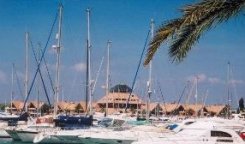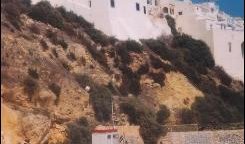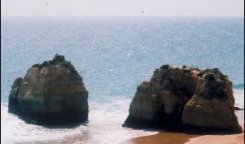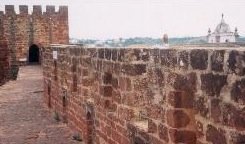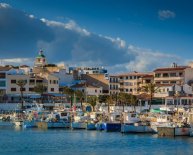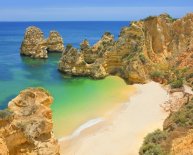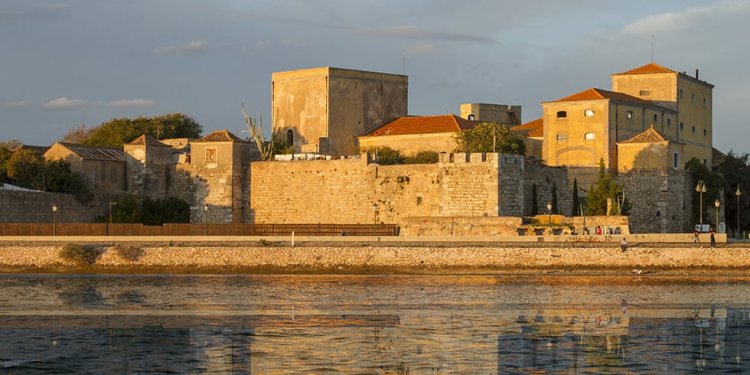
Faro, Portugal Tourism
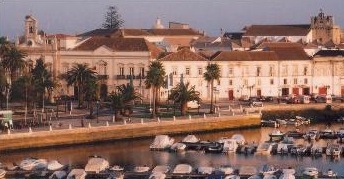
Faro, Vale do Lobo, Quinta do Lago, Vilamoura, Albufeira, and Silves - Luxury beach resorts and lively coastal villages
FARO is the capital of Algarve and home to its international airport. It is often overlooked as visitors just pass it on their way to the resorts, but those who choose to linger a while find a town of considerable charm.
The main point of interest is the peaceful old town, reached via the Arco da Vila, an 18th century arch with stork nests at the top, built on the site of a medieval castle gate. At its heart is Largo da Sé, a cobbled square surrounded by elegant buildings, including the Bishops' Palace. Two hundred of its valuable books, now in the Bodleian Library in Oxford, were stolen during the period of Spanish rule in 1596 when English troops burned the city.
In the center of the square is the Renaissance-style cathedral, which was all but destroyed in the English attack. The base of the bell tower, its medieval doorway, and two chapels survived, but everything else was rebuilt in the following century.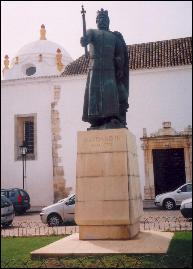 The interior is richly gilded and decorated with 17th and 18th-century tiles, while behind it is a 16th-century convent converted into an Archeological Museum that includes remains from the nearby Roman ruins of Estoi. Particularly interesting is the mosaic devoted to Neptune and the four winds. The museum is located in Largo Dom Afonso III, a square dominated by the statue of King Afonso III, who conquered the city from the Moors in 1249.
The interior is richly gilded and decorated with 17th and 18th-century tiles, while behind it is a 16th-century convent converted into an Archeological Museum that includes remains from the nearby Roman ruins of Estoi. Particularly interesting is the mosaic devoted to Neptune and the four winds. The museum is located in Largo Dom Afonso III, a square dominated by the statue of King Afonso III, who conquered the city from the Moors in 1249.
Nearby is also the Church of São Francisco with a plain façade but with rich gilt-covered woodwork and blue and white tiles in the interior.
Back in the modern center of town is Faro's most bizarre sight, the Chapel of Bones in the baroque Carmo Church. The chapel's walls are entirely covered with bones and skulls from the church cemetery (put on display as a grim reminder of mortality), while the rest of the interior is Baroque, mostly decorated with precious Brazilian gold leaf. The Church of São Pedro is also attractive, with a fine altar whose central image is a gilded Last Supper in relief.
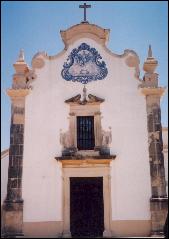 Many of the neighboring streets are pedestrianised, filled with inviting cafes and restaurants. A famous cafe is Café Aliança, a charming old-style coffeehouse with images of a bygone Faro.
Many of the neighboring streets are pedestrianised, filled with inviting cafes and restaurants. A famous cafe is Café Aliança, a charming old-style coffeehouse with images of a bygone Faro.
By the harbor are two small museums, the Regional Ethnographic Museum (providing a glimpse of traditional Algarve way of life), and the Maritime Museum (with model ships illustrating the region's and the country's naval history).
The closest beach is a stretch of white sand on Ilha de Faro, reached by frequent ferry or bus services.
Just west of Faro is RIA FORMOSA NATURAL PARK, an important bird nestling area and an unique ecological environment formed by lagoons.
ESTOI is 11 km (7 miles) from Faro, and the site of several Roman ruins dating from the first or second century AD. There are thermal baths, columns, mosaics depicting sea life, and a well-preserved villa dating from the 2nd century. Some other finds are now housed in Faro's Archeological Museum.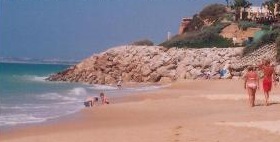 Overlooking the site are also the remains of a temple, which was later converted into a Christian basilica in the 3rd century, making it one of the world's oldest churches.
Overlooking the site are also the remains of a temple, which was later converted into a Christian basilica in the 3rd century, making it one of the world's oldest churches.
Also worth seeing in Estoi is the Estoi Palace, just off the main square. Built in the 18th century, it is one of the few buildings to escape the 1755 earthquake. It is a pink Rococo palace similar to a bigger one in Queluz near Lisbon, with romantic gardens dotted with orange trees and palms, fountains, statues, and 19th century tiles depicting naked mythological women.
West of Faro is ALMANCIL, from where it is possible to reach the luxurious holiday villages of VALE DO LOBO and QUINTA DO LAGO. But before reaching Almancil it is worth stopping in São Lourenço to visit one of Algarve's treasures, the Church of São Lourenço. Built in 1730 and miraculously unaffected by the Great Earthquake, its interior is an outstanding masterpiece of stunning tile panels, covering even the cupola.
Prestigious Vale do Lobo is not too far away, with its high standard of accommodation, sports facilities and concern for the environment having earned it an award of "Best Resort of the Millennium." It also offers a wonderful beach that remains uncrowded even in high season.
